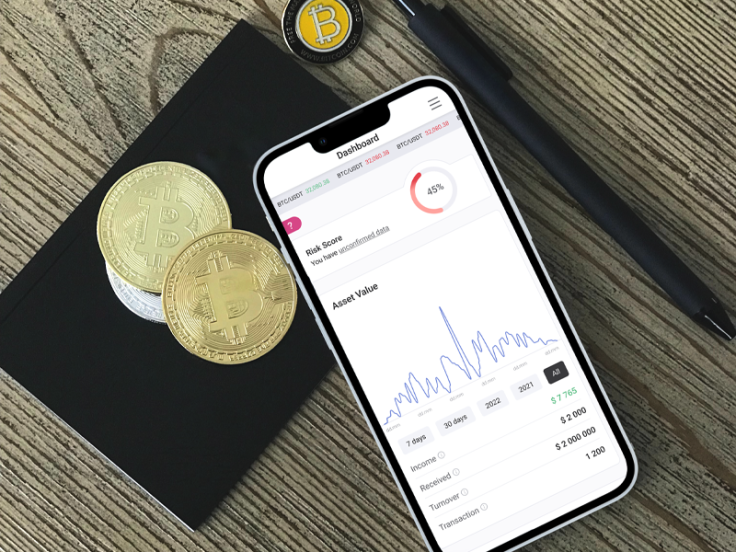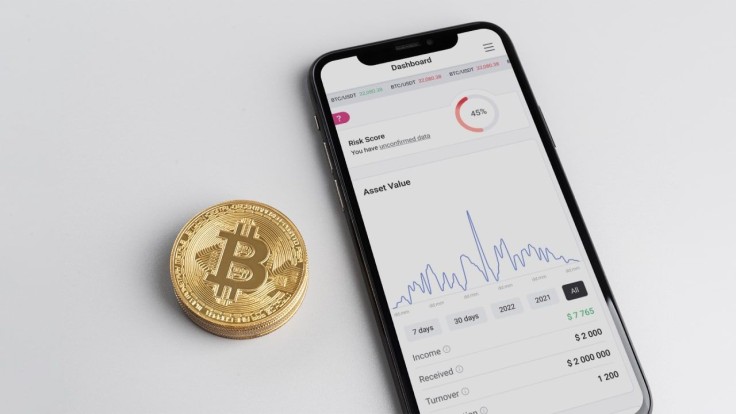
If you're dealing with cryptocurrency, it doesn't matter whether you're a speculative investor, a day trader, a Web3 employee who gets their salary in USDT or you're just looking for a quick, low-fee way to purchase a Rolex abroad, you may at some point come into contact with crypto that has touched some unsavory addresses. But what constitutes dirty crypto?
Well, any cryptocurrency can become dirty if it gets involved with illegal activities. You can think of the world of Web3 as the great frontier of the 19th century, the Wild West. Dirty crypto is like the gold that was stolen from bandwagons, and with no police around to control such crime, it runs rampant, 'tarnishing' all of those beautiful golden bricks. Right now, this is an issue facing the world of decentralization, and until it gets fixed, you need to know how to protect yourself.
Types of dirty crypto
The vast majority of dirty crypto comes from hacking. Take the Ronin Bridge hack for example. In March of 2022, hackers managed to gain access to five out of the nine validator nodes on the network and performed a 51% attack. Boom, 650 million drained straight to North Korea, a country that earns less than 100 million from annual exports. Then there's the Nomad bridge hack that happened in August. Hackers took advantage of a code vulnerability after a smart contract update. False transactions were initiated, and Nomad's reserves - drained. Losses? 200 million. Even big exchanges such as Binance have seen their fair share of these kinds of attacks. Binance in particular lost 570 million from the BSC token hub bridge in October. All of this crypto still exists on the network and is slowly filtering down into the addresses of ordinary users through mixing engines.
Aside from hacking, cryptocurrency is the perfect medium of exchange when it comes to scams and ransom requests, as an address does not necessarily lead to an identity, especially in the world of DeFi. By the same token, when it comes to purchasing and selling drugs, ordering hits, and other forbidden services or products on the darknet, cryptocurrency is always the payment medium of choice due to its anonymous nature. According to BitOK, an Israeli-based service for crypto tracking, accounting, and control, approximately 46% of Bitcoin transactions are involved in illegal activities. However, the overwhelming majority of users who are interacting with cryptocurrency are legitimate users who understand the benefits of a decentralized payment system. However, this makes it even more important to understand the risks involved - more and more people are entering a world that is still rather risky.
So, what are the risks involved?
Of course, there are special AML engines that are able to detect dirty cryptocurrency. If your wallet is found to contain some of those coins, you can be subject to a whole range of investigatory measures and penalties.
Most importantly, if your cryptocurrency has been deemed to be dirty, you won't be able to trade it on centralized exchanges such as Binance. These reputable services that use KYC verification to peg identities to wallets won't just refuse to process your transaction, but they might ban your wallet altogether and report your identity to the authorities. The only way you'll be able to get rid of such currencies is through underground P2P platforms or miner exchanges that are known for their extortionate fees. You might come into contact with such crypto because you've accidentally purchased it at a discounted rate on such an exchange.
Of course, you can attempt to get rid of the currency only if you know that you have some - in most legitimate cases, you'll be totally unaware until it's too late. How do you know if it's too late? You'll likely be hit with huge fines - according to AMLD5, exchanges and wallets that don't comply with AML regulations can be forced to pay up to 200,000 EUR for their interactions with dirty crypto. Moreover, even if you can prove that you didn't know that the funds were illegitimate, they will still be forfeited; you'll be left without the currency, a page-long legal bill, and a pending fine.

How the AML watchdogs catch you
Now, you're probably wondering - if they didn't catch those responsible for laundering the money in the first place, how can the authorities catch you? After all, the main principles that underlay the crypto world include privacy and anonymity.
The most common way that your crypto will be called up is through KYT (Know Your Transaction) engines that exchanges, wallets, and marketplaces are ordered to implement. While there's a bit of a divide in the industry currently, with a large percentage of services still refusing to integrate such invasive services, KYT is mandatory for global AML compliance.
At the heart of such procedures is on-chain analytics, which detect interactions with blacklisted addresses, mixers, suspicious transaction activities, sanctioned individuals, PEPs, and more. Many aren't aware that currencies such as BTC are incredibly easy to trace on the blockchain which makes mapping a worthwhile and profitable activity for companies such as Crystal Blockchain that offer KYT.
Whereas several years ago, the technology that could map the blockchain and create links between addresses was underdeveloped, breakthroughs in recent years have ensured that in some cases, crypto can be tracked through mixers - engines that aim to fundamentally anonymize crypto.
This is how links are made between your wallet and the wallets that are known for money laundering, terrorist financing, hacking, and other criminal activities.
How can you protect yourself from dirty crypto?
So, now that you're aware of what dirty crypto is, the penalties, and how easy it is to get caught with it on your address - it's important to educate yourself on ways to protect yourself from such associations.
Our first piece of advice is to avoid cryptocurrency mixers like the plague. If mixers are detected on your on-chain history, it's automatically a red flag. The only legitimate reason you have for using a mixer is if you've been sent an amount of illicit funds and are being blackmailed. In this case, cleaning your funds to get yourself out of such a situation makes sense. On the business side, employees might wish to hide how much their employees are being paid. Otherwise, the risks are just not worth it. As a rule of thumb, if your cryptocurrency didn't originate from the darknet or diverse illegal activities, mixers aren't needed.
Secondly, stick to centralized crypto exchanges that require KYC with KYT procedures already implemented such as Binance. In this sense, you won't end up with illicit cryptocurrencies in the first place. If you need to use decentralized exchanges, then make sure that you keep your funds separate. Have a wallet for potentially dirty funds that you're unsure about, and have a wallet on a centralized exchange in which only vetted, clean funds exist. Do not, by any means, mix these funds, as you risk losing everything. One drop of black paint in a bucket of white makes grey.
Thirdly, and most importantly, make sure that you are utilizing a service that assists companies and individuals in navigating the regulatory landscape. For example, BitOK offers an easy-to-use portfolio tracker with an in-built set of tools for mitigating AML risk. You can find out more about BitOK here.
In terms of final words - the world of crypto is still very much the Wild West. If you're in tune with your history, you'll know that the gold rush gave way to one of the richest independent nations on earth. However, the frontier that made it all possible in the 1800s was wrought with fire and spewing geysers. If you can navigate the crime and dirty crypto while the regulations are still settling, it'll be plain sailing into Web3.









